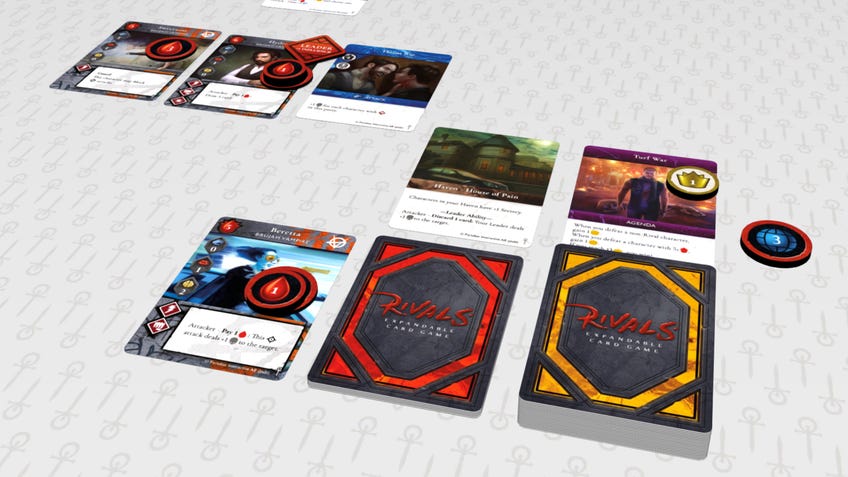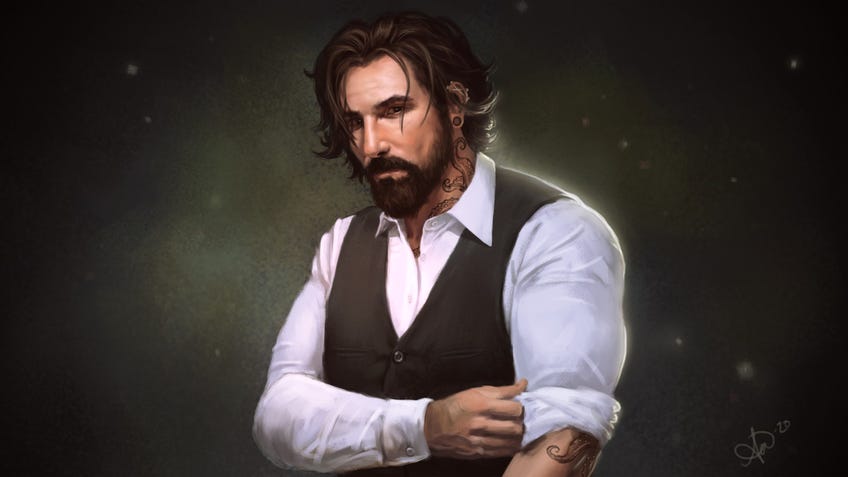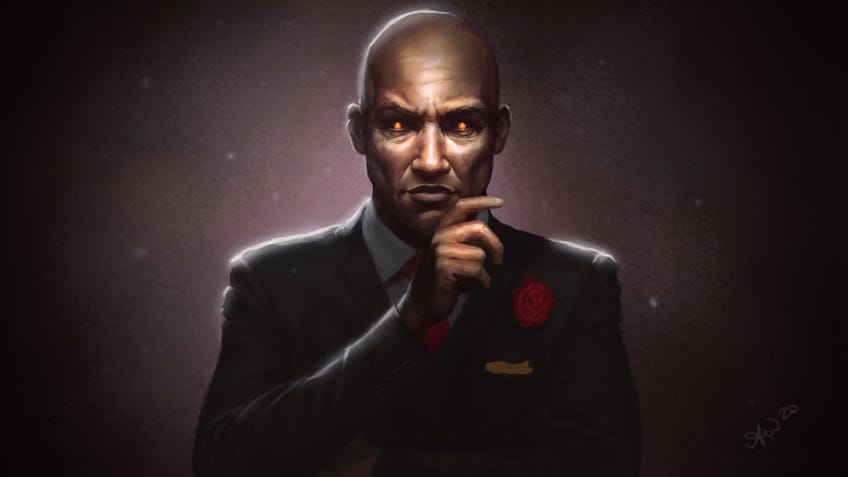Vampire: The Masquerade card game Rivals is bursting with scheming and strategy to sink your teeth into - Kickstarter preview
Clash of clans.
The return of Vampire: The Masquerade to the forefront of the gaming landscape might best be described as a frenzy. The franchise has never really gone away, but the new White Wolf backed by Paradox Interactive has shown that the publisher wants to make all sorts of games set in the World of Darkness. A fifth edition of the tabletop RPG came out in 2018 and the intervening years have seen announcements of card games, board games and the long-awaited sequel to PC game Vampire: The Masquerade - Bloodlines appeal to fans like the delicate throats of clubbers at a blood rave. One of these games, expandable card game Vampire: The Masquerade Rivals, is on the way from publisher Renegade Game Studios. I was ushered into a shadowy back room away from the prying eyes of mere mortals to take a look.
Rivals centers on the schemes of vampires in the city of San Francisco. (Sorry, fans of Kindred: The Embraced, I didn’t see any references to Julian Luna.) Each player takes the role of the leader of one of the Kindred clans vying for power in the city. The starter box includes four: the temperamental Brujah, the chaotic Malkavians, the seductive Toreador and the authoritative Ventrue. The object of the game is to gain 13 agenda points by hurting opponents, collecting retainers and taking action against events in the city. Each clan has a different way to achieve this goal. As the Brujah, I got agenda points for starting fights with everybody in pursuit of a turf war. My opponent, the Ventrue, got points for giving themselves titles of leadership within the city, such as Herald, Senechal and, of course, the coveted leadership post of Prince of the City.
Each player starts with an agenda, a haven and the leader of their clan in play. Vampires are in their haven or in the streets. Vampires have to move into the streets to attack cards, while staying in a haven makes it more difficult for their enemies to find them. Havens also offer a unique power depending on their location in the city.
Every turn sees players taking two actions for their clan which break down into three main categories: recruiting a vampire, playing a card or attacking. The vampire cards feature their abilities, stats and great artwork. Vampires are brought into play by spending prestige. This is the first balancing act of the game. Prestige is hard to get back; lose it all and you’re out of the game. But hoard it and you’ll only do one or two things a night while your opponents’ grip on the city tightens.

Your Kindred exhaust themselves for most of your schemes and, as a clever twist, can’t be killed. If they are beaten down too badly, they go into torpor - the immortal sleep vampires sink into from time to time. They lose any attachments when they go away but in a few turns’ time (or sooner, if you’re willing to sacrifice some resources) they come back. Torpor is a flavourful touch of strategy to keep players who invest energy in specific cards from watching it all burn up after a bad attack. It’s a good way to keep players competitive in a game that thrives on multiplayer tension while still making a player take a gut check before throwing down.
The thicker action deck is where Rivals’ schemes come alive. The deck offers specific attacks beyond the basic ones characters can make. Every character has a rating in physical, mental and social strength. Card attacks offer bonuses to these strengths and combo off of the disciplines possessed by your Kindred. Disciplines are the vampire powers of lore; forming a crew that synergises these is where some of the heavier deck-building will be found. The abilities can mean everything from doing more damage with vampiric superhuman strength to an opponent being unable to block an attack with a lesser minion when mesmerized with an unholy gaze.

One of my favourite types of cards during the demo were conspiracies. They work a little like agendas from the late, lamented Android: Netrunner in that they are played facedown and players invest currency on them. The player that used the card chooses a later turn to reveal its effects, either providing who invested a bonus or inflicting a penalty on those who abstained. This mechanic instills the true feeling of Kindred politics as a player might show another their card and then conspire against a third. It seems conspiracies could also be used as resource traps as the player who controls the card triggers its reveal.
Outside of each player’s clan deck, they must face the city deck. This is a common deck from which mortals and events pop out every turn. Mortals can be attached to vampires as retainers to buff them - or discarded as the vampire feeds on them to repair damage. There are also events that affect everyone, including the attacks of government-sponsored vampire hunters the Second Inquisition.

Renegade has been quiet on expansion details for Rivals, but we did find out the studio expects to drop a new expansion every three to four months after launch. The sooner they can get out all the clans from VTM, the more likely Kindred fans will sign on. The city deck seems like prime real estate for expansion with different cities represented by different boxes. Full plans for the game will be revealed when the Kickstarter goes live next week. One question yet to be answered is the crypt deck mentioned by our demo leader, hinting at some form of legacy or storyline play that might change or improve existing cards in the starter box.
Vampire: The Masquerade - Rivals launches on Kickstarter on August 4th.


